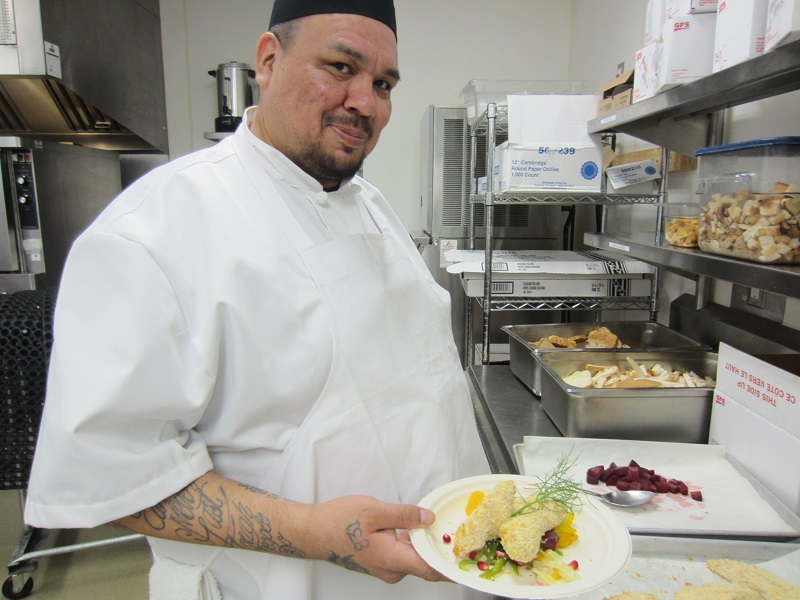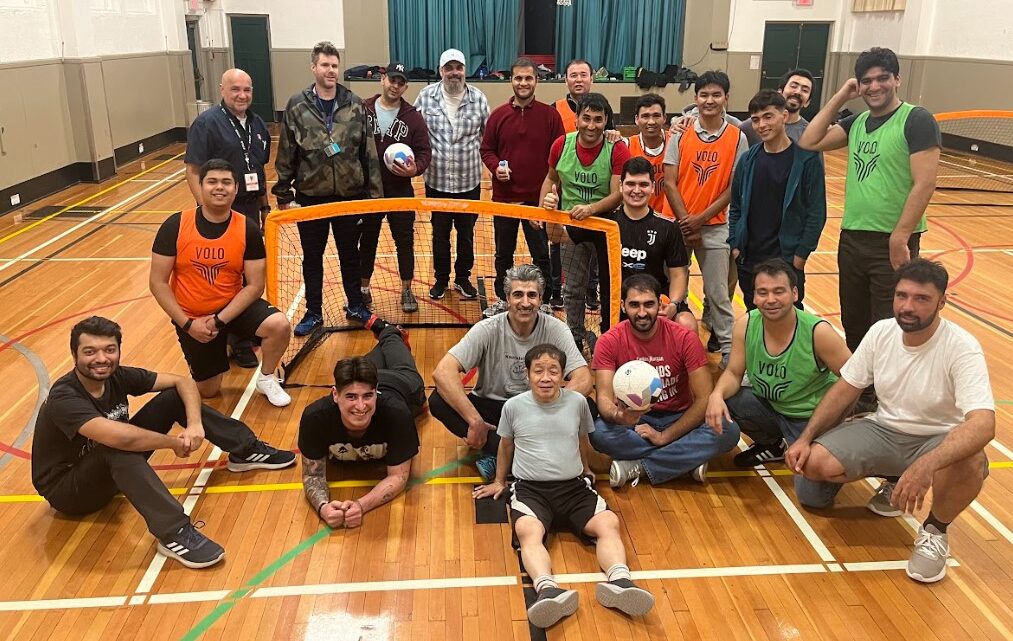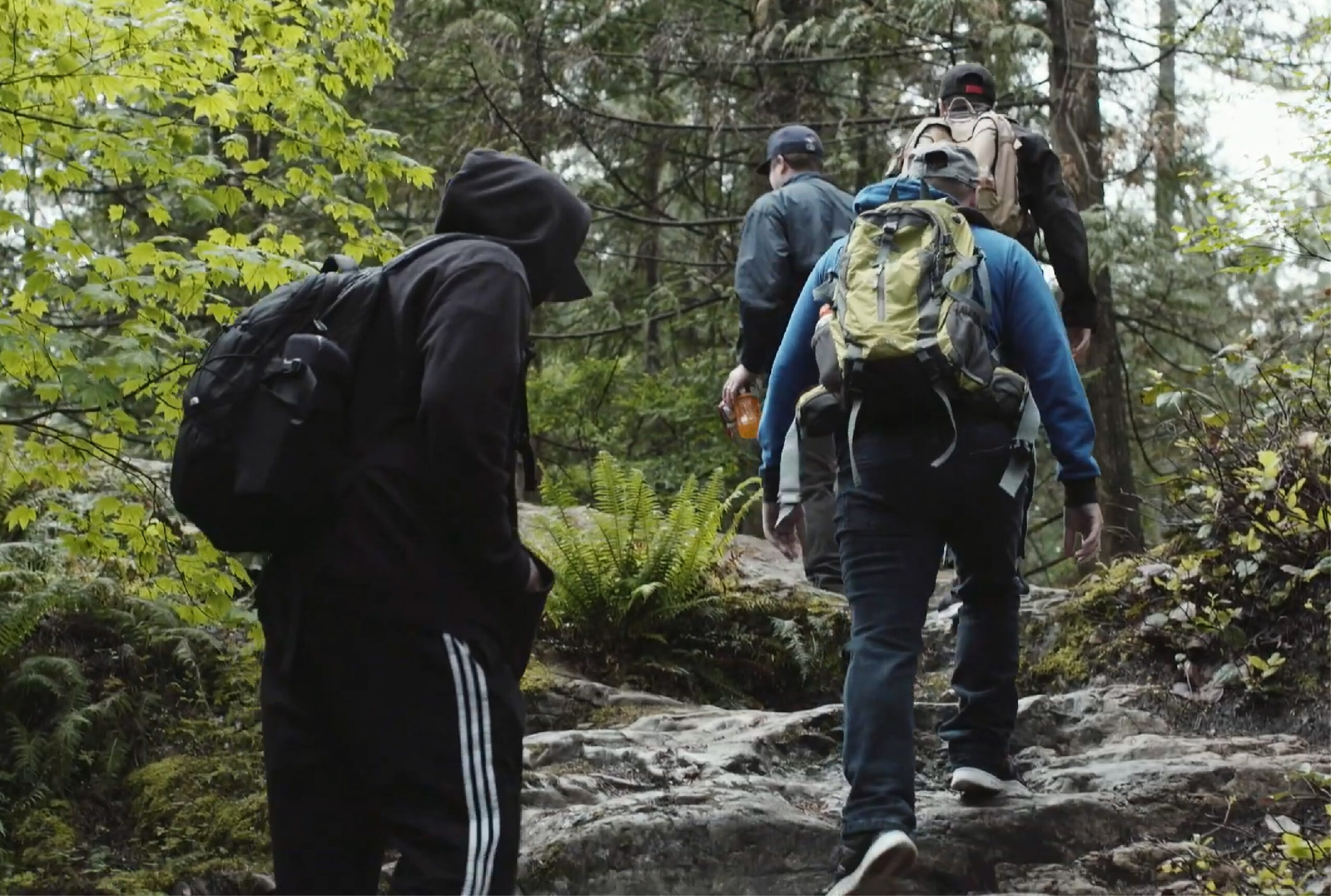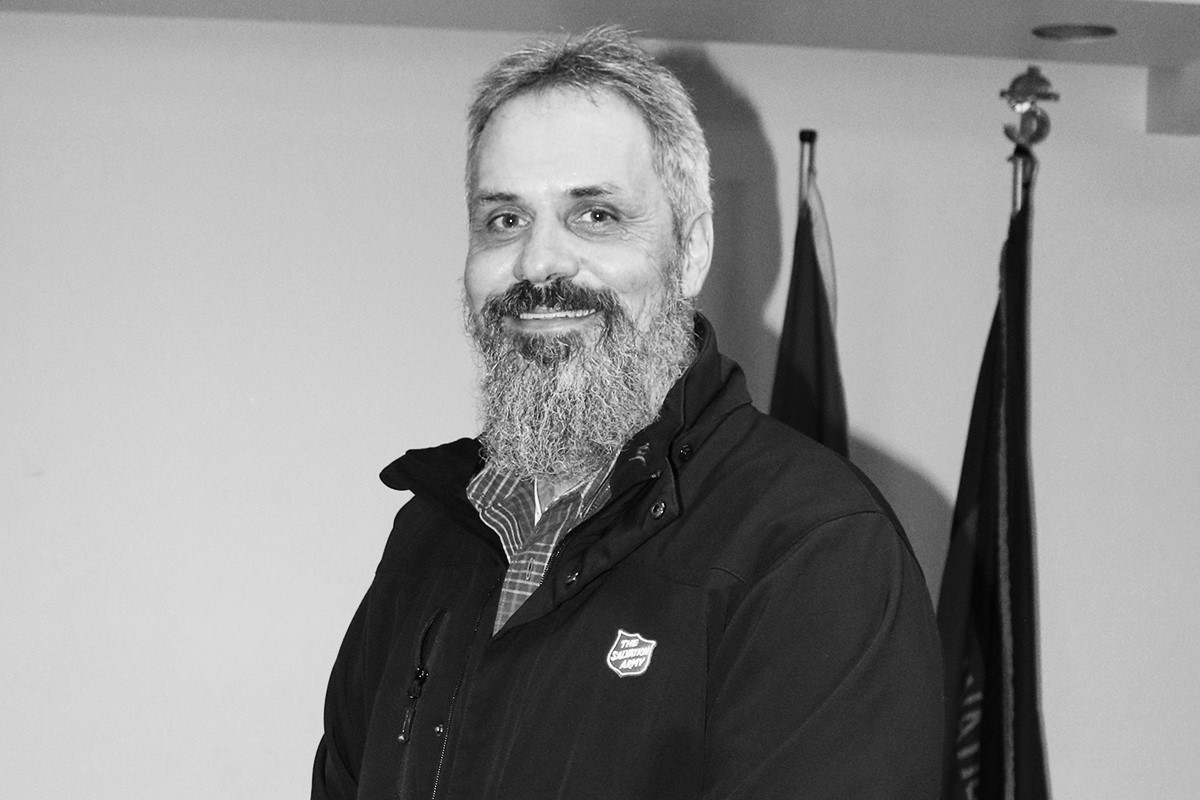A Personal Story of Triumph

For three decades, drugs and alcohol were Norman’s solution to numb the heartache of abandonment, betrayal, violence and emotional abuse. Then, after meeting his first grandchild, he really wanted to be a positive influence. But could he get serious about recovery and healing the relationships he had with his children?
The Effects of Parental Alcoholism
As a toddler, Norman was exposed to the effects of alcoholism at home. Both parents were alcoholics. He often witnessed violence and the police were called frequently. By age three, he was living in foster care.
“I lost count of how many foster homes and young offenders’ facilities I lived in,” says Norman. “When I was told I would be a ward of the court, that government would make decisions about my life, I chose to be homeless. I was 13.”
From ages 13 to 40, Norman slept in vestibules, on park benches and in emergency shelters—sometimes at The Salvation Army where he would also get food and clothing. Feeling like a hopelessly lost cause, he didn’t think he deserved to get clean.
“I’m on the other side today because of programming, structure, caring and loving.”
“The constant desire for more drugs and my association with gang violence and criminal activity cost me a lifetime of pain,” says Norman.
Having Courage to Pick Up the Phone
“The life I live today doesn’t look like the one I lived in addiction,” says Norman, 45. “When I met my grandchildren, I was physically sick from drugs and alcohol, and ashamed of my poor choices. I wanted to be a positive impact on their lives. I was ready for change. In 2016, I picked up the phone to seek help and was referred to The Salvation Army’s Belkin House in Vancouver.”
“The life I live today doesn’t look like the one I lived in addiction.”
Belkin House offers a residential facility, a temporary home for individuals experiencing homelessness or at risk of homelessness. The state-of-the-art building was designed specifically to accommodate housing, training programs, in-class instruction and other services such as counselling. A diversity of residents benefit from programs and fresh opportunities for change.
“No one in my life gave me guidance until I came to Belkin House,” says Norman. “When I arrived, I was a wreck. All I cared about was selling dope to feed my addiction. I’m on the other side today because of programming, structure, caring and loving.”
Healing and Transformation
At Belkin House for 23 months, Norman participated in programs such as life skills, anger management and substance-use recovery. While there, he graduated from the culinary arts program headed by the Belkin House food services manager. In December 2020, he was hired on as a full-time cook.
“I wouldn’t be alive today but for The Salvation Army.”
“The recovering me is responsible, self-sufficient, hard-working and substance-free,” says Norman. “I am grateful I chose to go to Belkin House. I wouldn’t be alive today but for The Salvation Army.”
By Linda Leigh



